Ajmer Sharif
Dargah Mannat
of Khwaja
ji
Garib
Nawaz Ajmer Sharif
Mannat wish Rajasthan, India
Make Good (Lawful) & true Heartfelt Wishes at the Holy
Dargah of Khwaja Garib Nawaz. By Allah & His Rasool(S.A.W) Grace, by Khwaja
Garib Nawaz Blessings all your Wishes & Desires would get fulfill INSHA ALLAH
Ajmer Sharif Dargah Mannat, Khwaja ji Ajmer Sharif Mannat wishes
Rajasthan, India
Vows Manokamna
The shrine had become one of the most important centers for the diffusion
of composite culture that had struck deep roots in the psyche of both the Hindus
and Muslim. Thus the result of the long association of the Hindus with the shrine
can be assessed from the customs at the Dargah by the Muslims and Hindus alike.
For example putting Lachcha (red and yellow threads) around the neck or hand of
the devotees, pasting of sandal at mazar and tying of threads at shrine as a mark
of vows (mannat), cracking of coconuts at the door steps of Dargah, and the lighting
ceremony at dust etc are symbolic of the emerging of composite culture.
The word NAZR is an Arabic word which means "an offering,"
in its verbal form it will mean "to offer" or "to make a spiritual
vow."
Note that NAZR is used in Arabic in a totally different
meaning also - "to warn," that is not in this context. Therefore, we leave
that for the time. The Glorious Qur'an has used the word "NAZR" in both
meanings. We will only discuss here the first usage, i.e., which is relevant to
our discussion here. Sometimes the word NIAZ is also used in this context. This
is a word from Farsi which means "need," and it is its metaphorical use
in the sense of an offering.
The basic concept of NAZR is to offer something less valuable in the
hope and expectation of receiving something of higher value. The "value"
does not have to be material; it could just be honor and dignity. The examples below
will explain this notion further.
1. In 5:27-31 the Glorious Qur'an tells the story of the two sons of the
prophet Adam (peace be upon him). The two sons of Adam (Habeel and Qabeel, Anglicized
names: Able and Cain) made an offering to their Lord, one was accepted and the other
was rejected. The brother, whose offering was rejected, became jealous of his brother
and in a rage of jealousy and frustration he killed his brother. For that Qabeel's
face was darkened, he went crazy and he will bear the burden of every unlawful murder
to the Day of Judgement. Note that the word for offering used in the Glorious Qur'an
in this instance is Q-R-B instead of NAZR
2. In 3:35
the Glorious Qur'an tells the story of Maryam's (Mary of the Christian scriptures)
mother. When a woman of Imran said: My Lord, surely I vow to Thee (rabbi inni nazartu)
what is in my womb, to be devoted (to Thy service); accept therefore from me, surely
Thou art the Hearing, the Knowing. However, when the child was born, it was a girl
(Maryam) and the families were puzzled as to how to send a girl to the Temple. But
they fulfilled the vow as they had promised their Lord. And, Maryam was dedicated
to serving in the Temple under the guardianship of prophet Zakaria (peace be upon
him). Later she gave birth to Prophet Jesus (peace be upon him)
3. In 19:26
the Glorious Qur'an tells the story when Prophet Jesus is born without a father
and the Jews are asking of Maryam about such an implausible situation. So eat and
drink and refresh the eye. Then if you see any mortal, say: Surely I have vowed
a fast to the Beneficent God (inni nazartu lir-Rahmaani sawman). So I shall not
speak to any man today.
4. In
the first twelve verses of Sura Dahr (chapter 76) the Glorious Qur'an tells the
story of NAZR by the Ahlul Bayt (may our salams and Allah's peace be unto them).
The Glorious Qur'an describes the beginning of man and the attributes of a grateful
man in this chapter. One of the many attributes of a grateful and faithful person
is described in verses 7 and 8: "Because they perform the vow (yufoona bin-nazri)
and fear a day whereof the evil is wide-spreading, And feed with food the needy
wretch, the orphan and the prisoner, for love of Him."
The Hadeeth literature indicates that the Ahlul Bayt (A.S) showed
the importance of Nazr by their acts more than once. The following story is recorded
in many tafseer books about the revelation of these verses of sura Dahr.
Once the Imam Hasan and Imam Hussain, who were at that time 5 and 4 years old, fell
ill. When the Prophet of Islam, missed them in the mosque, he came to Hazrat Fatima
Zahra's house to inquire about them. When he was told that they were sick, he suggested
that both parents should take a spiritual vow (Nazr) for the children's recovery.
So both Imam Ali and Fatima Zahra prayed to Allah for the recovery of Hasan and
Husayn (peace be unto them all) and took a vow to fast for three consecutive days
when the children became well again. The children did recover from the illness soon
after. Both parents set about fulfilling their spiritual vow and fasted. When the
children saw that, they also decided to fast with their parents and so did the house-maid,
Fiddha.
But that day there was no food in Fatima's house even for breaking
the fast. So Imam Ali went out looking for work. He could not find any. But he was
able to get three kg's of wool to be spun in exchange of three kg's of barley. Fatima
Zahra spun the wool all day. She was only able to dispense with one kilo of it.
So she took only one kilo of barley ground it into flour and prepared five loaves
of bread. While they were all ready to break their fast, someone knocked at the
door saying: "O people of the house of the Prophet, I am a poor man and I have
nothing to eat, is there anything you could do to feed me." At this Imam Ali
stood up, went to the door and gave his loaf to the man. Fatima Zahra did the same.
Watching this, both children also gave their loaves and so did the maid. They broke
their fast by water and retired.
The next day Fatima Zahra spun another kilo of wool. So she separated
one kilo of barley, ground it into flour and prepared five loaves once again. As
they were ready to break their fast, once again, a voice called out from the door:
"O people of the house of The Prophet, I am an orphan, I am hungry, could you
feed me?" Hearing this, Imam Ali stood up and gave his loaf to the man, so
did Fatima Zahra, the children and the maid.
They all, once again, broke their fast by water and retired. Came
the third day, Fatima Zahra spun the rest of the wool, took the remaining barley,
ground it into flour and prepared five loaves. As they were ready to break the fast,
a voice called from the door saying: "O people of the house of the Prophet,
I am a prisoner, I am hungry, could you feed me?" Hearing this, once again,
Imam Ali stood up and went to the door and gave his loaf away to the prisoner. Fatima
Zahra, the children and the maid did likewise. Every time the person at the door
would want to express his gratitude for the kindness, Imam Ali would say: "No,
no, we are not looking for any reward from you for this act, we are doing it out
of Allah's love."
Firstly a Devotee makes a vow and when his vow (Mannat) is fulfilled
he makes the offerings Nazr-O-Niyaz.
The offerings is this that the devotee has not made
any vow, but when he visits at Dargah for Ziarat (Pilgrimage) he out of devotion
presents certain money at the Holy Dargah of the Khwaja Sahib with the intention
that whatever he is presenting, he is presenting as an offering to that Saint with
clear implication that the same will be used by those who are entitled to receive
it. At Ajmer the devotees pay offerings to a Khadim whom they take as their well
wisher ( vaqil) or spiritual preceptor (Moallim).
Devotees of Khwaja Sahib can makes a vow (Mannat) that he will perform the
Ziarat (Pilgrimage) of Dargah of Hazrat Khwaja Moinuddin Chishty Ajmeri . If a person
makes a vow Mannat that he would send some amount of money on the Dargah of Hazrat
Khwaja Moinuddin Chishty Ajmer, or the descendants of the Khwaja Sahib, without
having any particular project in mind, he should spend it on the repairs, lighting,
Langer, Chader, Flowers, well-fair of Dargah etc. of the shrine.
The Deghs (Cauldrons) Booking
Online Services For Ajmer Dargah Deg of details
Inside Dargah Sharif two big Deghs (pots) are installed for cooking Niaz
(purely vegetarian food; cooked with rice, ghee, nuts, safron & sugar). The
system of cooking food in cauldron (Degh) was first introduced by Akbar. Since then
a large quantity of food of different kinds has always been cooked in Deghs generally
at night, and is distributed among the people after Fajr (morning) prayers.
Tomes Coryat, who visited Ajmer, at the time of Jahangir, says that the Mughal emperor
once ordered the preparation of Khichri in the Degh to be distributed among
5000 people, taking out the first
on a platter with his own hands, followed by the Queen, Noor Jehan, and other ladies
of the Harem. Once, Shahjahan mixed the meat of a Nilgai (one of the species of
antelope) in the preparation of Degh, which he had shot during a hunting expedition.
In the second half of the eighteenth century, when Ajmer came under the control
of the Marathas and Rajputs, a new kind of food known as Kesaria Bhat (saffroned
sweet rice) was cooked in these Deghs and that has continued to this day.
Big
Degh : It was presented by Emperor
Akbar, 4800 kgs
of food can be cooked in it and the cost comes to about
2,00,000.00
Indian Rupees.
Small
Degh : It was presented by Emperor Jahangir, 2400 kgs of food can be cooked
in it that approximately amount to
1,00,000.00 Indian Rupees. N.B. : 1. All these Deghs are cooked by Zaireen (pilgrims/devotees)
who can afford to cook, Bavakalat (through) respective Khadims of Khawaja Gareeb
Nawaz. If anyone of you has a plan to cook Degh at any time of the year, please
let me know in advance, so that I may make the necessary arrangements required,
as Deghs are cooked all the year round. It can be cooked in your personal presence
and also in your absence, on your behalf or any sort of Niyaz you want to cook other
then Degh
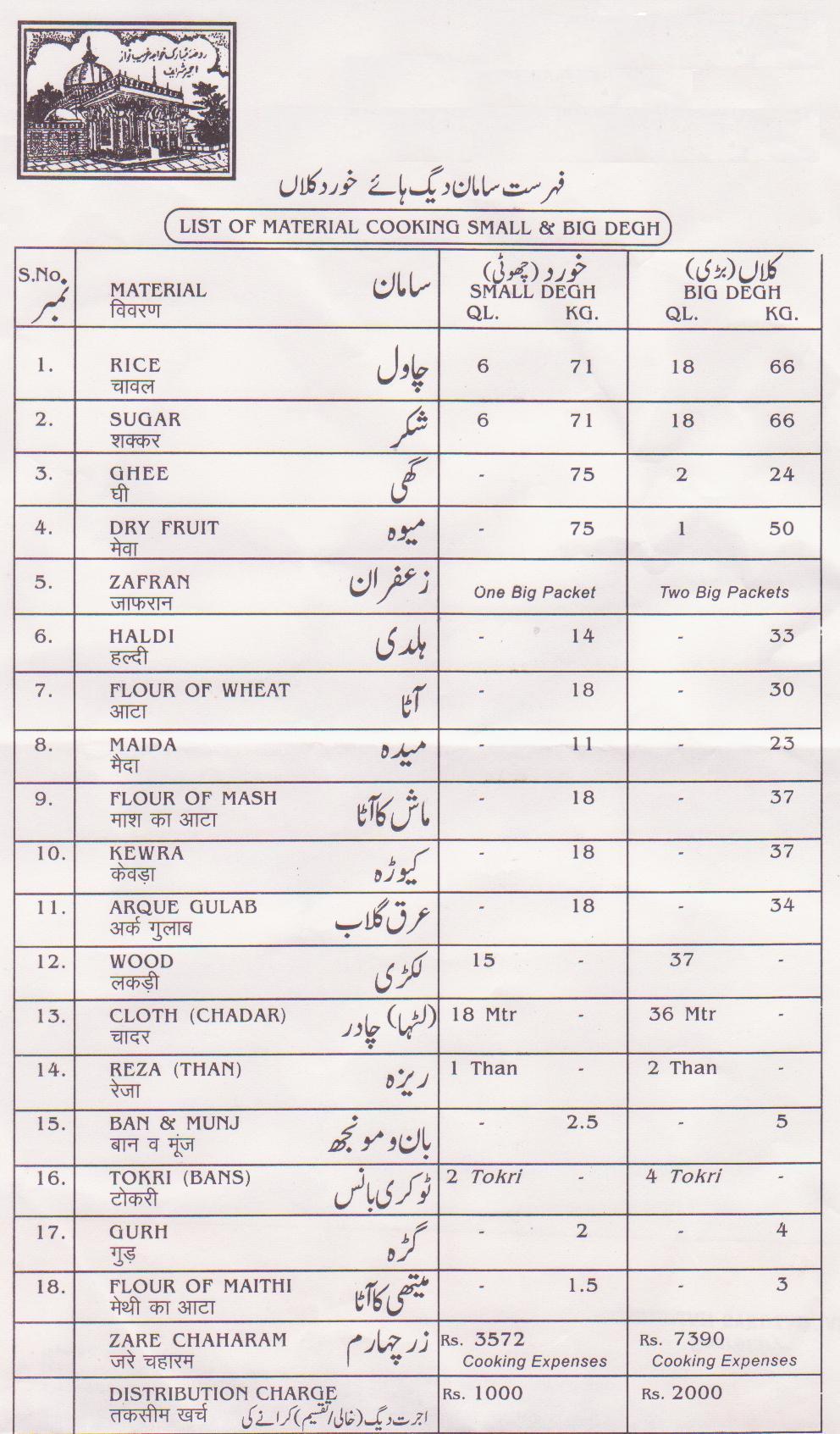
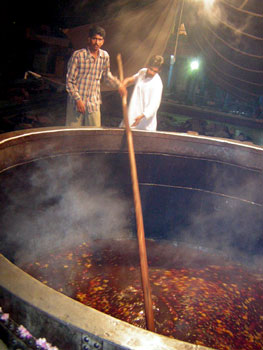
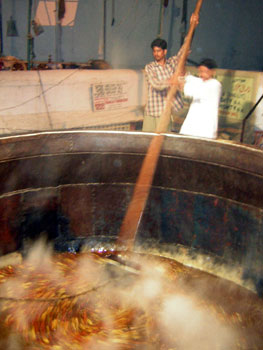
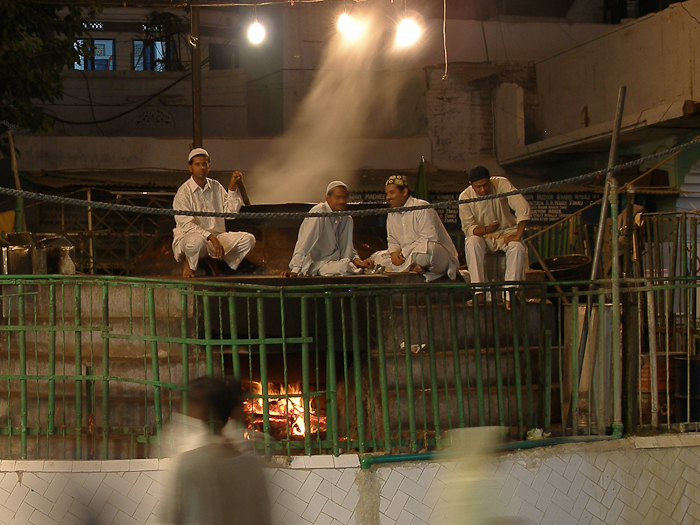
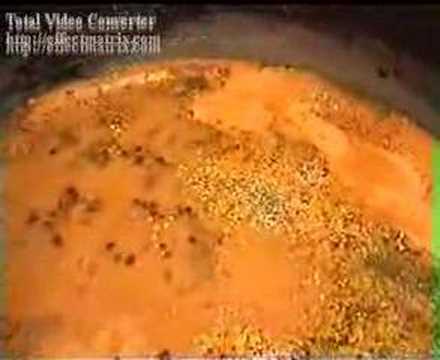
Ajmer Sharif Dargah Langar
LANGER (FREE DISTRIBUTION OF FOOD)
Right from the time of HUZOOR KHWAJA GHARIB NAWAZ (R.A) the Langar is cooked twice
a day in the Darbar of HUZOOR KHWAJA GHARIB NAWAZ (R.A) and is distributed among
the poor without any discrimination
FATHEAS
We perform monthly fathea of HAZRAT KHWAJA GHARIB NAWAZ (R.A)
on every sixth of Islamic month known as Chatti Sharief beside that we also perform
the fathea and urs of prophet MOHAMMED (S.A.W), and all the famous successors and
predecessors of PROPHET MOHAMMED (S.A.W) and of GHARIB NAEAZ (R.A). Special function
are held on eid meeladun nabi, urs of KHULFA-A-RASHIDIN and of GHAUSPAK. Shab-e-Miraje
, Shaban-e-moazam etc. we welcome anybody to take part in all these pious and auspicious
functions and fatheas and get benefited by heavenly reward
GILAF (VELVET
CLOTH TO COVER HOLY MAZAR-E-AQDAS)
To cover the Holy Mazar a velvet cloth is required which is offered
by the devotes of KHAWAJA GHARIB NAWAZ (R.A) this velvet cloth is usually 42 meters
in size
We make it possible for you to participate in all the activities of Dargah Sherief
these activities include Milad , Khatam-e-Quran , special monthly prayers , offering
of Ghilaf , Sandalwood , Flowers and we also make arrangement for the donation of
room by devotees for people visiting the holy shrine .
If you want to visit the holy Darbar of HUZOOR GARIB NAWZ (R.A) and participate
in any of this activity contact me I will make free arrangement for your lodging
, food and other niceties.
Note: We don't accept zakat , sadqa, fitra. Please don't send zakat ,sadqa or fitra
money for offerings and Nazar-o-Neaz.
Contact
Moallim Gaddi Nashin of Dargah Khwaja
Saheb Ajmer Shareef Rajasthan India
ajmer sharif Darbar Khwaja Sahib Fund
dargah ajmer sharif Rajasthan India
Peer Baba ji Syed Sameer Chishti Shah
s/o Pir Baba
ji Syed Sultan Chishti Shah
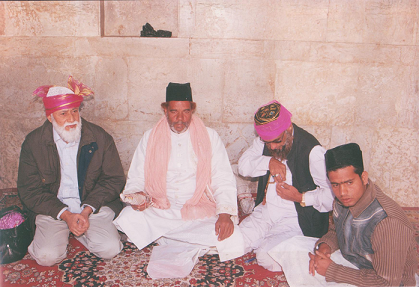
Pir Baba ji Syed Samir Chisty Shah
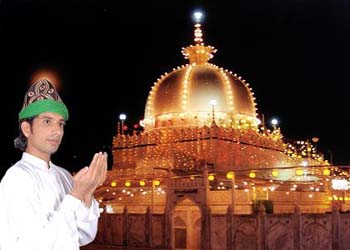
Gaddi Nashin Aastana-e-Aliya Khawaja Ghareeb Nawaz
111 , Faiz Manzil, Nathwan Shah, Khadim Mohalla, Dargah
Sharif
Ajmer-305001 (Rajasthan.) India
Mobile No.+91 8875300786;
- +91
9461130786
Mo No. +91 9351929593; - No: + 91 0145
2426590
 sameerchishtyshah@gmail.com
sameerchishtyshah@gmail.com

ICICI Bank Details
Account Name Sameer Chishty Shah
Account No.
018501524429
( ICICI Bank Ajmer Branch Code 000185 )
( Swift Code: ICICI NBBCTS
)
( Micr Code 305229002
) - ( IFSC Code: ICIC0000185 )
Address: ICICI Bank Ltd, 429/A/11,
Vinod Bhawan, India Motor Circle,
Kutcheri Road, Ajmer.
305001
City : Ajmer, District
: Ajmer, State : Rajasthan, India
State Bank Of India (SBI)
Account Name
- Sameer Chishty Shah
Account No.
34781216485
-
( IFS Code: SBIN0007959 )
( SWIFT / BIC CODE: SBININBB372 )
DIGGI BAZAAR, AJMER RAJASTHAN , PIN - 305001